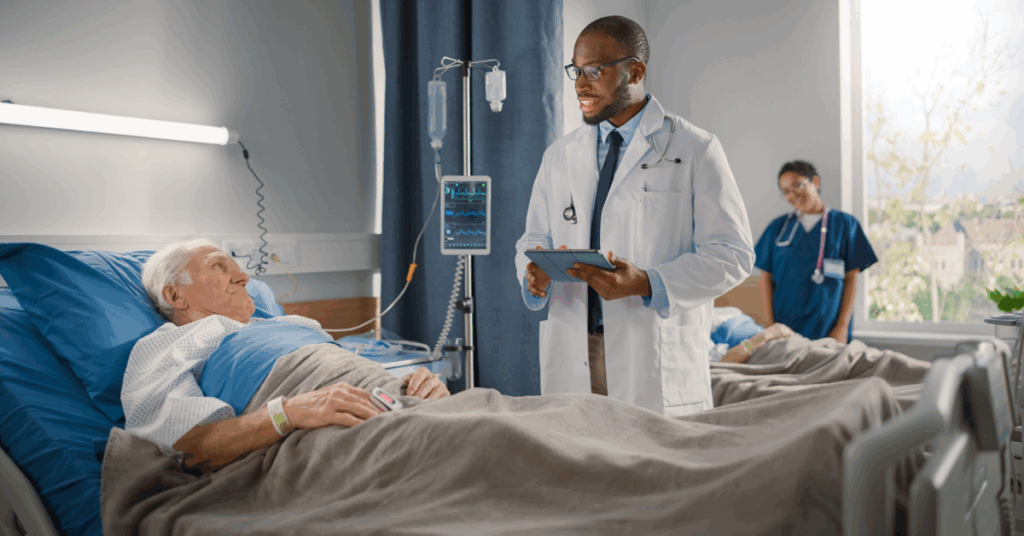
Gastric bypass is a life-changing surgery for people who struggle with obesity and related health issues. For those in the United States considering this surgery, understanding the importance of gastric bypass care before and after the procedure is essential. The surgery can bring incredible health improvements, but it also requires long-term commitment. Knowing how to take care of your body both before and after surgery can make a huge difference in your results and recovery.
Gastric Bypass Care: Preparing Your Body Before Surgery
Before gastric bypass surgery, preparation is key. Patients often need to follow a special diet to reduce fat in the liver. This makes the surgery safer and easier. Most doctors recommend a high-protein, low-carb diet weeks before the procedure. This change can help the body adjust and start the weight loss journey early.
Another important part of gastric bypass care is quitting smoking and avoiding alcohol. Tobacco slows healing and raises the risk of infection. Alcohol can interfere with medications and increase surgical complications. Many doctors also advise stopping the use of marijuana and other recreational drugs before the procedure. These substances can affect how the body responds to anesthesia and delay recovery.
Exercise is encouraged, even if it’s something simple like walking every day. Moving your body before surgery helps with circulation and strengthens your heart. Mental preparation is also vital. Patients should understand that surgery is just the beginning of a new lifestyle, not a quick fix.
The Day of Surgery and Early Recovery
On the day of surgery, it’s normal to feel nervous. Hospitals usually require fasting from the night before. Patients arrive early and are placed under general anesthesia. The procedure typically lasts a few hours. After waking up, many feel discomfort but pain is usually managed with medication.
Early gastric bypass care focuses on rest and gentle movement. Most patients start walking the same day or the next to prevent blood clots. It’s important to follow the hospital’s guidance closely. This includes breathing exercises to keep the lungs clear and prevent complications.
Diet is very restricted in the first few days. Patients start with clear liquids and gradually add protein shakes, broths, and eventually soft foods. This slow process allows the stomach to heal properly. Patients must sip fluids all day to stay hydrated and avoid vomiting or nausea.
Building New Habits in the First Weeks
The first few weeks at home are full of changes. This is when gastric bypass care becomes a daily focus. Eating slowly, chewing food well, and stopping at the first sign of fullness are critical new habits. Eating too fast can cause discomfort or dumping syndrome, which leads to nausea and weakness.
Avoiding sugar, fried foods, and carbonated drinks is essential. These foods not only cause discomfort but also risk reversing weight loss. Instead, the focus should be on lean proteins, vegetables, and nutrient-rich meals. Taking vitamins and supplements daily is necessary since the body absorbs fewer nutrients after surgery.
Tobacco, alcohol, and recreational drugs must still be avoided. These substances can cause serious issues with healing and interfere with medications. Even small amounts can lead to ulcers or liver problems. Following medical advice closely is one of the most important aspects of successful gastric bypass care during recovery.
Gastric Bypass Care and Mental Health
Weight loss after surgery can be quick and dramatic. While this is exciting, it can also be emotionally overwhelming. Many patients go through changes in how they see themselves and how others react to them. For this reason, mental health support is a valuable part of gastric bypass care.
Seeing a counselor or joining a support group can help. Talking to others who have gone through the same journey offers real comfort and advice. It’s common to deal with anxiety or sadness during recovery, especially as old habits change. Having a strong support system makes it easier to stay on track and keep focused on long-term goals.
Emotional eating, for example, is something many people struggle with. After surgery, food can no longer be used in the same way. Learning new coping strategies, such as meditation or journaling, helps people adapt to this new lifestyle.
Exercise and Daily Routine After Recovery
Once the body starts healing, movement becomes even more important. Exercise is not just about weight loss; it helps with mood, energy, and long-term health. Walking, swimming, or light strength training are great ways to start. Over time, patients can do more as they feel stronger and more confident.
A big part of gastric bypass care is making exercise a regular habit. Staying active helps prevent weight gain and keeps muscles strong. It also supports the heart and reduces stress. Building a routine with realistic goals is more effective than pushing too hard too soon.
Avoiding old habits, like overeating or staying inactive, is easier when you have structure. Planning meals, sticking to vitamin schedules, and tracking progress help create healthy patterns. Every day is a new chance to reinforce those changes.
Long-Term Gastric Bypass Care and Maintenance
The success of gastric bypass is not just about the first few months. Long-term care makes the difference between lasting results and setbacks. This means continuing to eat balanced meals, exercising regularly, and seeing your doctor for follow-ups.
Alcohol and drug use should still be approached with extreme caution. The way your body processes substances changes after surgery. Even a small amount of alcohol can affect you more than it did before. Continuing to avoid smoking, vaping, and recreational drugs is a must for keeping your health in check.
Regular checkups allow your doctor to monitor vitamin levels, weight, and any complications. Blood tests are often needed to check for deficiencies. Sticking to these appointments is an essential part of gastric bypass care that should never be skipped.
Celebrating Success and Staying Committed
Reaching weight loss goals feels amazing, but staying there requires effort. Many people in the US have turned to gastric bypass as a tool to get their lives back. But surgery is just one part of the story. Staying committed to the lifestyle changes is what brings lasting health.
Celebrating progress in healthy ways, like buying new clothes or enjoying active hobbies, keeps motivation strong. Setting new fitness goals or even helping others through support groups can also keep you focused. When people stay involved in their own journey, they are more likely to succeed long term.
Remember, gastric bypass care never truly ends. It becomes part of your life—a daily commitment to health, balance, and self-respect. With the right care, support, and mindset, the results can be truly life-changing.
Do you have questions or want to learn more about our treatments? At IBI Laser Therapy, we’re here to help. Our team of professional doctors is ready to provide all the information you need. Contact us today and we’ll help you take the next step toward relief. Click here to schedule an appointment or receive more information.
